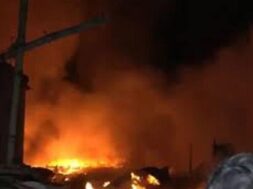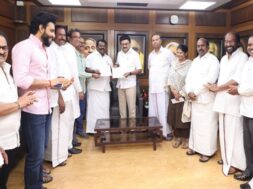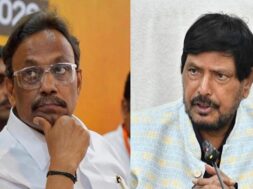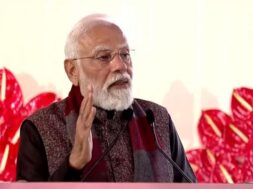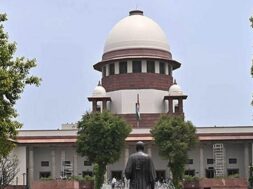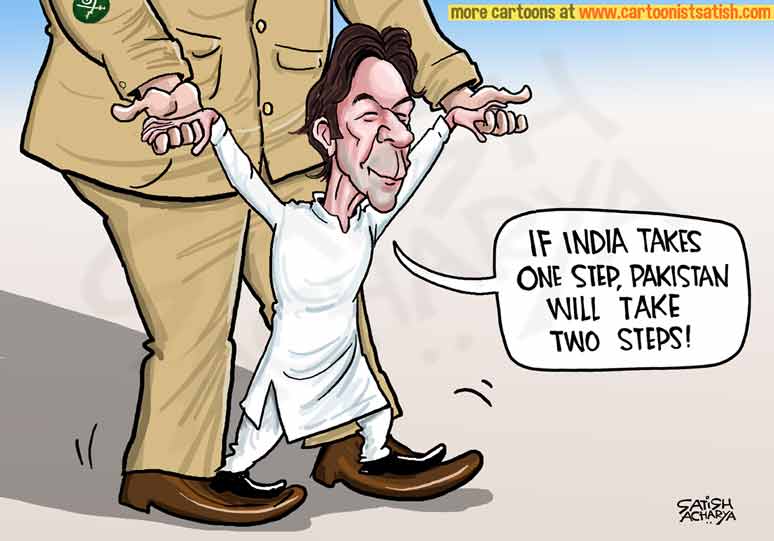
Virendra Pandit
New Delhi: The Arabs, whom Pakistanis once fancied as Santa Clauses, have successfully arm-twisted a bankrupt and recalcitrant Islamabad to repay loans, forcing it to mend fences with India with which it has fought three wars and has been at loggerheads since 1947.
Media reports said that the United Arab Republic (UAE)’s Foreign Minister Sheikh Abdullah bin-Zayed Al Nahyan’s February 26 meeting with his Indian counterpart Subrahmanyam Jaishankar paved the way for Pakistan to smoke the peace pipe.
Just a day after military chiefs from India and Pakistan issued a rare joint commitment to respect a 2003 cease-fire agreement, Al Nahyan visited New Delhi to discuss “all regional and international issues of common interest and exchanged views on them.”
Diplomatic sources said that, behind closed doors, the India-Pakistan cease-fire marked a milestone in secret talks brokered by the UAE over the last few months. The cease-fire is only the beginning of a larger roadmap to forge a lasting peace between the two South Asian nuclear-armed neighbors.
Efforts are on to make the two countries reinstate their envoys in Islamabad and New Delhi which were pulled out in 2019 when India revoked Article 370 of the Constitution and the “special status” to Jammu and Kashmir. Besides, they are likely to work on resuming trade talks.
A buffeted Pakistan has no alternative but to bow to the diktats of Saudi Arabia and the UAW where millions of Pakistanis earn their livelihood as workers and remit the much-needed foreign exchange back home.
A poor economy is forcing Pakistan to show peace overtures to India while geopolitical reasons, chiefly arising out of China, have prompted New Delhi to respond to Islamabad for any such efforts.
Another reason is Afghanistan where the Joe Biden administration is seeking wider peace talks. Both Pakistan and India have been battling for influence on Kabul from where the American-led NATO forces are expected to return in the near future. If and when it happens, Islamabad will have to be wary of the resurgent Taliban’s blowback, which is forcing it to keep its eastern front with India peaceful.
Last week Pakistan Army chief General Qamar Javed Bajwa asked India “to bury the past and move forward” while claiming that his military was ready to enter talks to resolve “all our outstanding issues.” His comments came a day after Prime Minister Imran Ahmed Khan Niazi called for a resolution on Kashmir, which he described as “the one issue that holds us back.”
A couple of days after he got inoculated with a Chinese vaccine against Covid-19, Khan tested positive. Modi tweeted wishing Khan well. Earlier, India had allowed Khan to overfly its air space for his Sri Lanka visit. These are seen as possible thaws, that relations between the two countries are getting warmer, once again.
Besides geopolitical and strategic reasons, the Arabs’ important role in making Pakistan see reason and normalize relations with India is also a key factor. Circumstances have forced Islamabad to shed, even if temporarily, its age-old hostility against India.
When the Arabs turned screws, as always, a teary Pakistan rushed to its ‘all-weather ally’ China for financial support.
Borrowing from Peter to pay Paul!
Pakistan had borrowed three loans from China to repay the $3-billion Saudi loan. Pakistani media said in January that “Beijing gave $1 billion soft loans and two separate financing lines of $1.5 billion and $500 million to pay back the Saudi debt.”
Beijing, itself facing an economic downturn, has reduced investments on the much-publicized China-Pakistan Economic Corridor (CPEC) and Islamabad’s dream of improving its basket-case economy has been shattered. Besides, Pakistan, in general, and its armed forces, in particular, are extremely demoralized after the People’s Liberation Army (PLA’s) poor show in Eastern Ladakh against India, despite a 10-month-long standoff.
In these gloomy geostrategic and economic scenarios, the Arabs have turned a knife into Pakistan’s wounds by demanding early repayment of loans.
Riyadh had provided Pakistan with a $6.2 billion financial support package shortly after Imran Khan became the PM in 2018. The package comprised a $3 billion loan and a $3.2 billion deferred oil financing facility. But their relations soured soon thereafter when Pakistan foolishly sought to form an alternative Muslim coalition with anti-Arab Turkey and Malaysia. The Saudis initially withdrew the arrangement for deferred payments for oil purchases and then forced Islamabad to repay the loan.
Even before Pakistan could repay the third and final tranche of $1 billion of the Saudi loan, the South Asian nation faced the possibility that the UAE too could seek the early repayment of a $3 billion financial support package announced in December 2018.
Pakistan had also tried to negotiate a bailout package with the International Monetary Fund but failed to get the suspended $6 billion IMF program restored. It still had to fulfill key conditions set by IMF, such as introducing a mini-budget and hiking electricity tariffs.
Pakistan’s central bank’s foreign exchange reserves of $13.4 billion remain fragile, as these largely consist of foreign loans. Short-term loans taken from commercial banks amounted to $4.6 billion as of November 2020.
